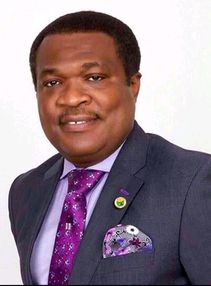By Abimbola Mohammed
Journalists are recognized world-over as the fourth estate of the realm, not just because they are professionals or keep people informed, they are granted such exalted recognition because they ensure that the first three estates; executive, legislature and judiciary are kept on their toes at fulfilling their constitutional duties. They are the watchdog, the sentinel and the ear, eyes and mouthpiece of the nation. Journalists were prominent in the fight for independence and during the military misadventure into politics, they championed the the struggle to free Nigeria from the clutches of the Khaki boys.
At times, these onerous responsibilities come at a price; at times, the price is so huge and fatal, it is called the ultimate price. According to an annual round-up report by Reporters Without Borders (RSF), it was estimated that about 1,668 journalists worldwide have lost their lives in connection with their work in the last two decades 2003-2022. These deaths occur either by contract killings, ambushes, war zone deaths and fatal injuries. This gives an average of more than 80 journalists killed every year. The total killed since 2000 is 1,787.
Since Nigeria adopted a democratic system of government in 1999 at least 19 journalists were said to have been killed mostly in questionable circumstances. According to the New York-based Committee to Protect Journalists (CPJ), 18 journalists were also killed in Sierra Leone between 1992 and 2022 either while covering dangerous assignments or through targeted murder.
While killings are the most extreme form of media censorship, journalists are also subjected to countless threats ranging from kidnapping, torture to harassment and other physical attacks, particularly in the digital sphere.
Freedom of the press can never be over emphasized, because it plays a vital role in our society. While this is said to be enshrined in most countries of the west with Africa in close chase, journalists still face untold hardships in the discharge of their duties.
As the world celebrates World Press Freedom this year, MARKETING EDGE pays tributes to journalists who have lost their lives in the course of carrying out duties by highlighting some of these fallen heroes of our noble profession.
Sumonu Oladele Giwa, the sensational writer and publisher of the pioneer magazine in Nigeria, Newswatch, was as sensational in death as he was in life. Born in Ife, southwest Nigeria, on 16 March 1947, Giwa spent his early years in Ife and, in 1971, he relocated to the United States to continue his education. He studied English at Brooklyn College and, after, earned a Master’s in Public Communication from Fordham University. He returned to Nigeria in 1979, and joined The Daily Times. He left later to start Newswatch, the first magazine in Nigeria with some of his colleagues.
Despite the tensions journalists in his era faced, Giwa’s attention to political and social injustice was unwavering. He was first arrested in 1982 for writing articles that attacked top officials of the Shagari government.
On Sunday, 19 October 1986, Dele Giwa was assassinated through a parcel bomb. Though his body was silenced, his voice and impact reverberates still. 36 years after his death, Dele Giwa’s legacy remains fresh; his ideals alive and resilient.
Bagauda Kaltho: was said to have been missing in 1995, and later was killed by a bomb blast at Durbar Hotel, Kaduna. Irrespective of the Mahdi Shehu’s twist, 27 years later, Kaltho’s death remains one of the dark spots in the annals of journalism in Nigeria.
Bayo Ohu: Assistant News Editor, Guardian newspaper, was shot dead in his home in the Egbeda area of Lagos one Sunday morning in 2009 in the presence of his then 10-month-old daughter. In what was suspected to be an assassination, the assailants only went away with his phone and laptop and did not attack other residents within the compound. Although some suspects were arrested and paraded by the Lagos State Police Command, nothing was heard of the case afterwards.
Dimgba Igwe: former Deputy-Managing Director, the Sun Newspaper Group, was said to have been knocked down and killed by a hit and run driver while jogging in his neighborhood. Igwe first emerged in the early 1980s as a strong voice in Nigerian journalism when he worked with the Concord Newspaper Group owned by the late Moshood Kashimawo Abiola. Mr. Igwe wrote a highly regarded column that focused on political and literary issues. He rose to fame as a co-editor of the groundbreaking Weekly Concord, with his longtime friend and collaborator, Mike Awoyinfa.
Tordue Salem: who worked with Vanguard Newspaper was found dead in Abuja North-Central of Nigeria on Thursday, Nov. 11, 2021, after a missing person report was filed by Vanguard. Late Salem, who was covering the House of Representatives, was last seen on Oct. 13, 2021 with an alarm on his mysterious disappearance being raised the next day
Hayatullah Khan: A Pakistani journalist was killed on 16th June, 2006, in Miran Shah, Pakistan. Khan wrote extensively on Al-Qaeda, Taliban and the heavy fighting among tribes in Waziristan, where he was found dead six months after his reporting contradicted Pakistan’s official statements. He reported from the border between Pakistan and Afghanistan, which at the time was one of the most dangerous places in the world.
Marie Catherine Colvin: was an American journalist who worked as a foreign affairs correspondent for the British newspaper The Sunday Times from 1985 until her death. She was one of the most prominent war correspondents of her generation, widely recognized for her extensive coverage on the frontlines of various conflicts across the globe. On February 22 2012, Colvin was killed in an attack made by Syrian government forces while covering the siege of Homs, alongside the French photojournalist Remi Ochlik.
After her death, Stony Brook University established the Marie Colvin Center for International Reporting in her honor. Her family also established the Marie Colvin Memorial Fund through the Long Island Community Foundation, which strives to give donations in Marie’s name in honor of her humanitarianism.
Shireen Abu Akleh: Palestinian-American Al Jazeera correspondent for 25 years, was killed on May 11, 2022 as she was covering an Israeli military raid on a refugee camp in Jenin in the northern occupied West Bank. Akleh was one of the most prominent names across the Middle East for her decades of reporting in the Israeli-occupied Palestinian territories. Over the course of her career, she reported on numerous major events affecting Palestinians, while also analyzing Israeli politics. Her televised reporting and distinctive sign-offs became common knowledge, and, as a leading journalist in the Arab world, she was a source of inspiration for many other Palestinians and Arabs, particularly as a role model for Arab women intent on pursuing careers in journalism.
Sheila Johana García: Yesenia Mollinedo Falconi On May 9, 2022, Falconi, director of a weekly publication El Veraz, and García, reporter of the same publication, were found slain in the Mexican state of Veracruz. Mollinedo and García were shot dead by unidentified assailants while getting into a car outside a convenience store in the town of Cosoleacaque. García was recently hired as a camera operator at El Veraz. According to media reports, Mollinedo’s brother said Mollinedo had received threatening phone calls ordering her to remove crime-related stories from her news portal and that, more recently; she had covered alleged abuses of power related to the Cosoleacaque mayor’s office. Initial police reports stated that the murders were possibly linked to the work of Mollinedo and García.
Jamal Khashoggi: a Saudi dissident journalist was assassinated on 2 October 2018 by agents of the Saudi government at the Saudi consulate in Istanbul, Turkey. Khashoggi was ambushed and strangled by a 15-member squad of Saudi assassins. His body was dismembered and disposed of. Khashoggi’s final moments were captured in audio recordings, transcripts of which were subsequently made public.
The Saudi government engaged in an extensive effort to cover up the killing, including destroying evidence. By 16 October, separate investigations by Turkish officials and The New York Times had concluded that the murder was premeditated and that some members of the Saudi hit team were closely connected to Mohammed bin Salman, the crown prince of Saudi Arabia.
According to UNESCO the global rate of impunity for killing journalists is worrisome. Nine times out of ten, the case remains unresolved.






Comment
No comments found.